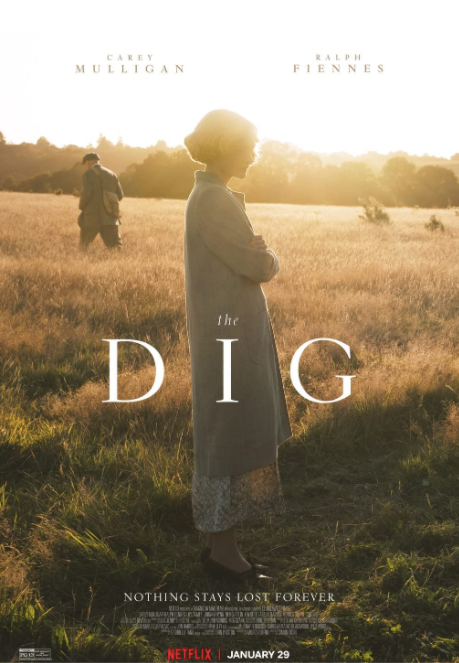
My wife and I just saw and very much enjoyed The Dig on Netflix -- an unerring recommendation of my sister-in-law Alexandra. It's the true story, by way of John Preston's novel, of a dig in Sutton Hoo, England in 1939 that unearthed a seventh century Anglo-Saxon ship buried on Edith Pretty's property.
The novel does a fine job of depicting the civilization of archeology against the impending soul-testing savagery of World War II. Science itself is accurately portrayed as challenged by human pettiness and foibles. The people who apply the science are all fallible, in one way or another, and some are lovable.
My favorite was Robert, Edith's young son, about 10, who has a love of outer space, replete with a copy of Amazing Stories. That rang a nice bell with me -- my first professional science fiction sale was to Amazing Stories in 1992, and I've even sold a few to that magazine under its new editor Ira Nayman in the past few years. In The Dig, Robert's love of space travel leads him to lie on his back in the excavated Anglo-Saxon ship with his mother and look at the stars above and imagine they are traveling out there in the cosmos. It's one of the most effective scenes in the movie, and makes the connection between sailing around the world on this Earth and beyond this world in space ships.
As is well known, space travel received a big boost from Werner von Braun and the rockets he built for Nazi Germany. They did plenty of damage to England in the Second World War. Von Braun surrendered to America at the end of the war, and played a major role building the American space program that got humans to the Moon at the end of the 1960s. Science and war have likely been married to each other, albeit not exclusively, since the get go. It would be good if someone day they weren't, and The Dig offers a powerful tableau of the pain, even horror, of their living together.
The acting is excellent. Basil Brown, the self-taught archeologist, is played by Ralph Fiennes, who has never been anything other than superb in any role he's played and I've seen. Carey Mulligan was memorable as Edith, as was Lily James as young archeologist Peggy Piggott. And good job Archie Barnes as Robert.
Further reading: The Missing Orientation
and

No comments:
Post a Comment